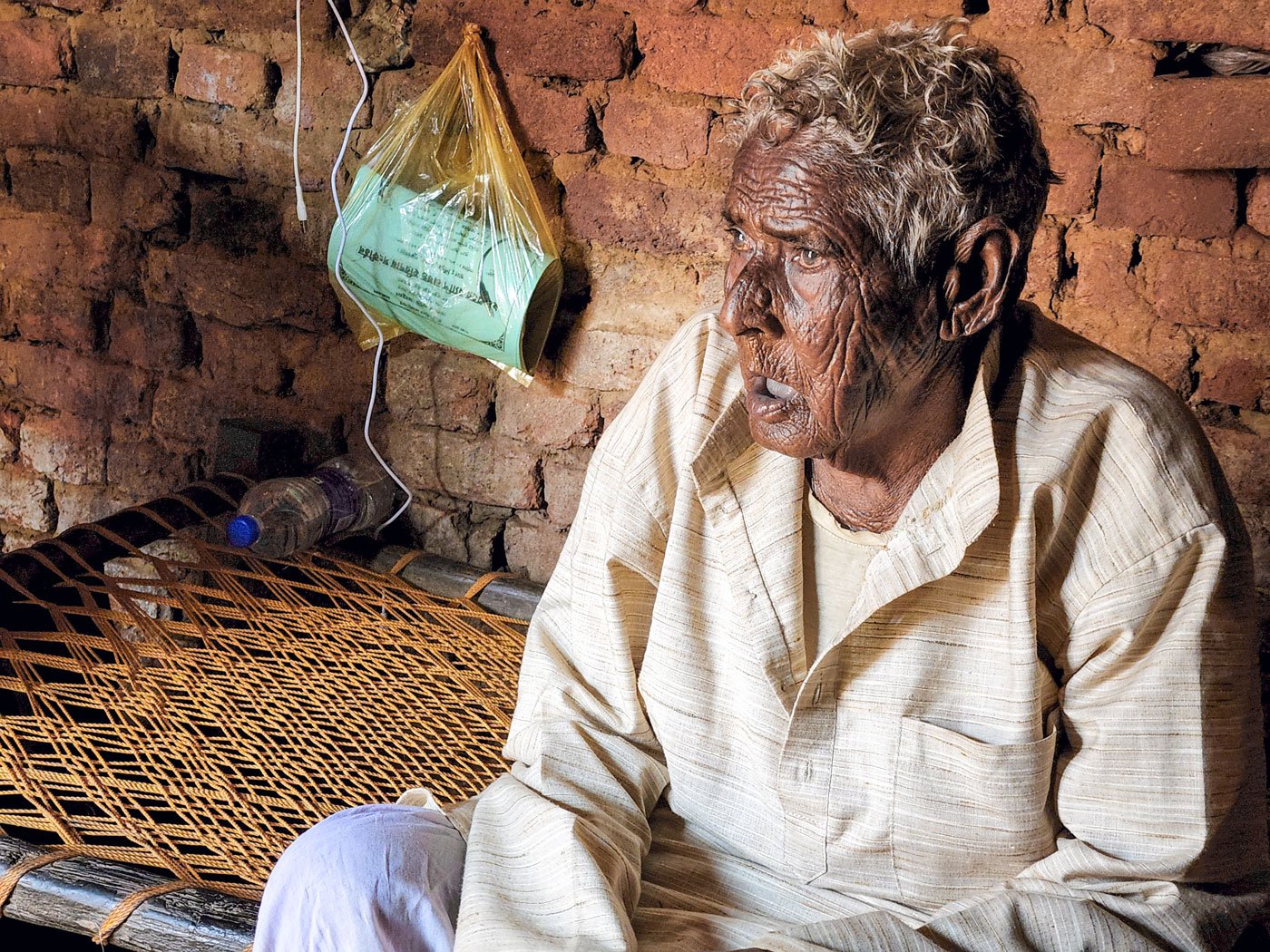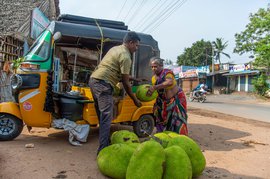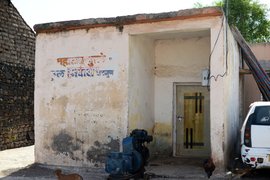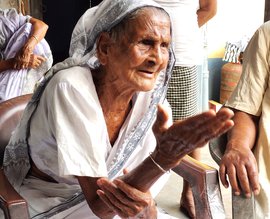Thelu Mahato, perhaps the oldest of the living freedom fighters who figure in my book The Last Heroes , died at his home in Pirra village of Puruliya district, West Bengal, on the evening of Thursday, April 6, 2023. He is the first of those still living when the book was published, to pass on. He was the last survivor of the historic – though now forgotten – protest march on 12 police stations in Puruliya in 1942. Thelu was somewhere between 103 and 105 years of age.
With his passing, we move a step closer to losing our Golden Generation, those who fought for our freedom and helped make India an independent nation. In five or six years there will be not a single person alive who fought for this country’s freedom. Newer generations of Indians will never get to see, speak or listen to India’s freedom fighters. Never be told directly who they were, what they fought for – and why they fought for freedom.
And Thelu Mahato and his lifelong comrade Lokkhi Mahato were so keen to tell their stories. Anxious that the young and newer generations should know that they stood up for their country and were proud of having done so. Thelu can tell his own story no more. Neither will, in the next 5-6 years, the remaining survivors of his generation be able to tell theirs.
And what a loss that will be to young Indians of the future. What a loss it already is, to our present generations that know so little and are unlikely to learn of the Thelus of our time, their sacrifices, or of why their stories are so important to the shaping of our own.
Especially in an era where the history of India’s freedom struggle is not being so much rewritten as fabricated, invented and forcibly imposed. In public discourse, in the content of significant sections of media, and frighteningly, in our school textbooks where key truths like those surrounding the assassination of Mohandas Karamchand Gandhi are steadily being erased.
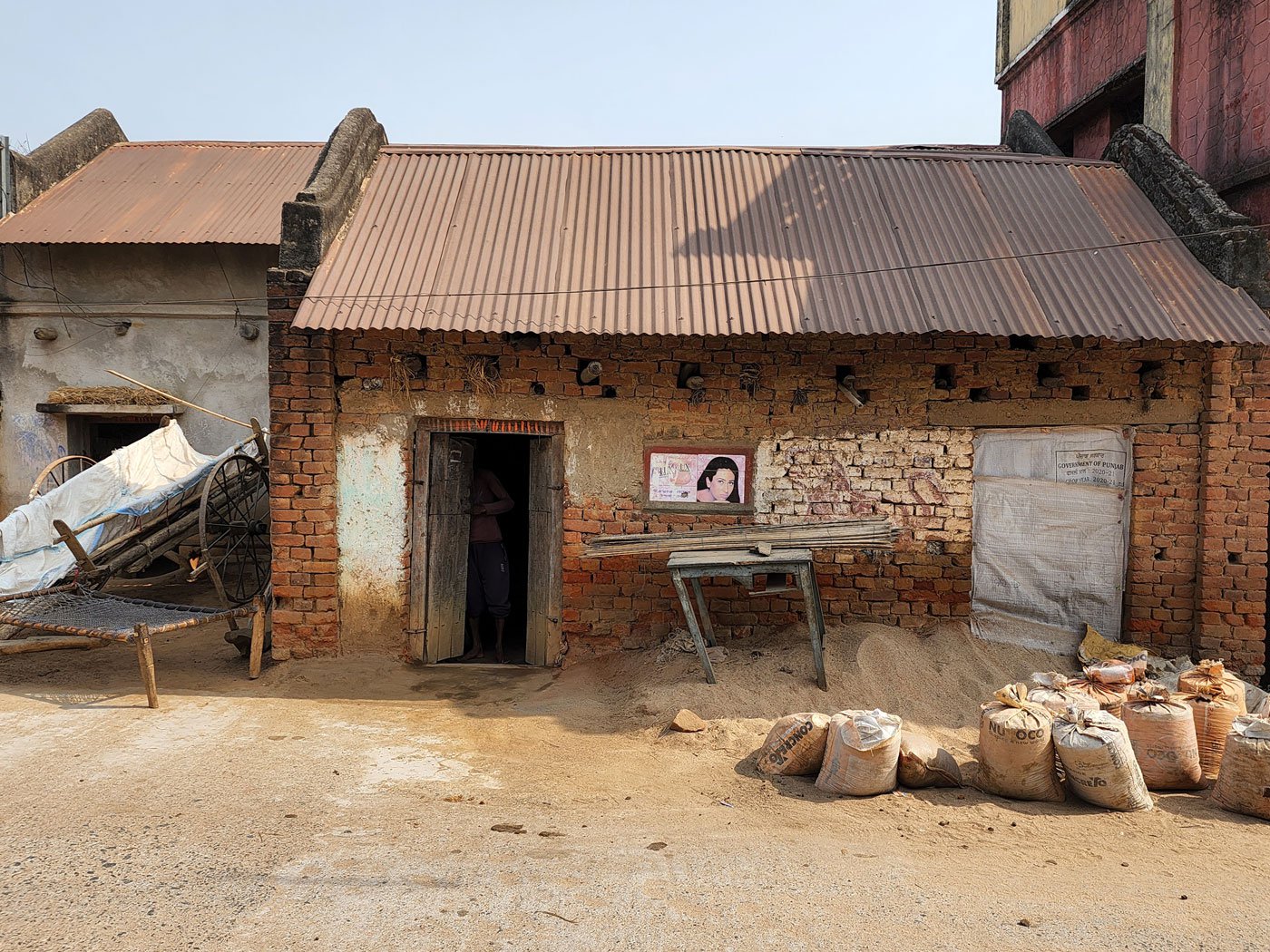
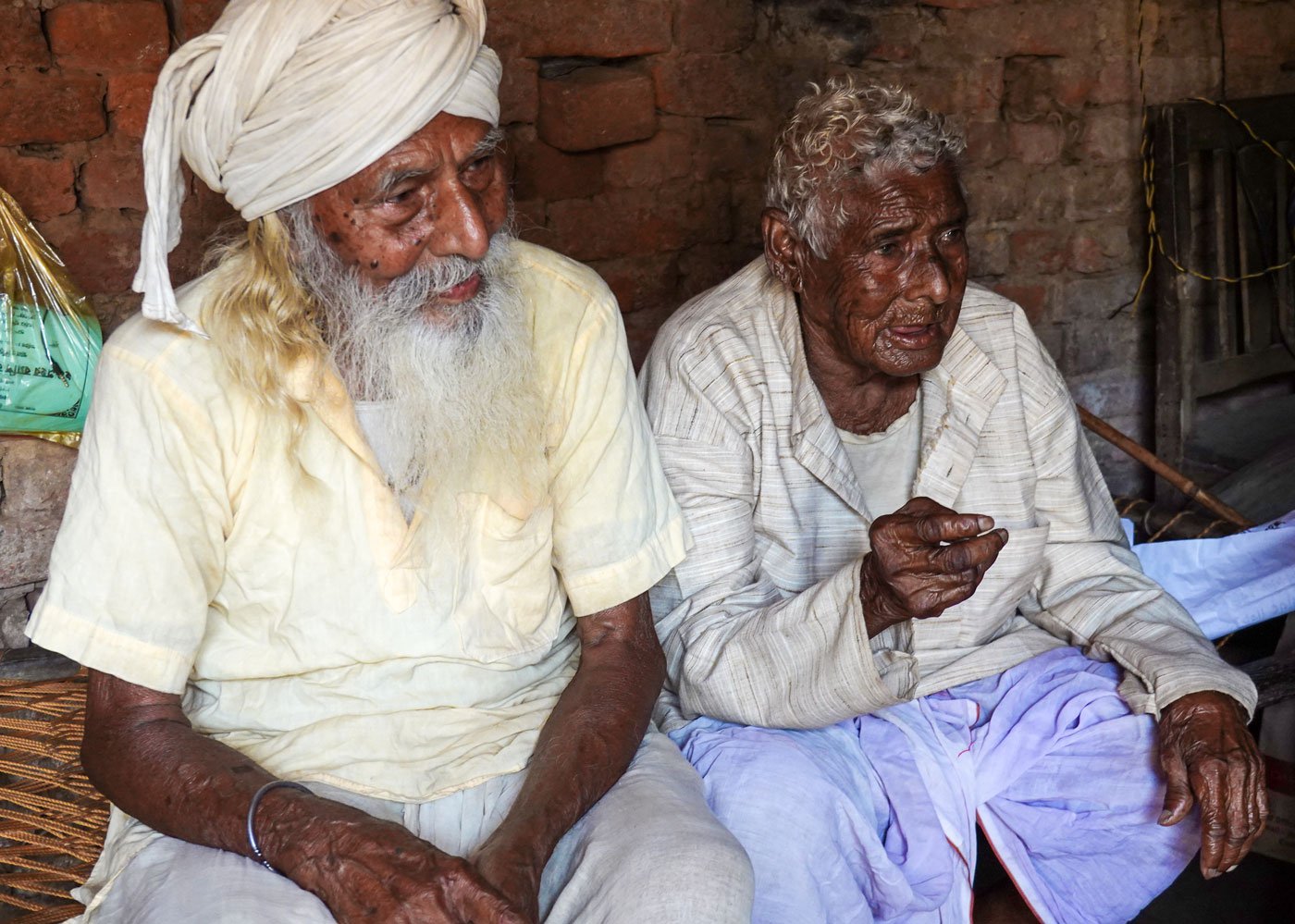
Thelu Mahato's home in Pirra village of Puruliya district, West Bengal where he passed away on April 6, 2023. Thelu never called himself a Gandhian but lived like one for over a century, in simplicity, even austerity. Right: Thelu Mahato and his lifelong comrade Lokkhi Mahato were keen to tell their stories
Thelu Mahato never called himself a Gandhian but lived like one – for over a century. In simplicity, even austerity. In the freedom struggle, he was one of those who marched on 12 police stations in Puruliya on September 29 and 30, 1942. He saw himself as a leftist and revolutionary, but one pledged to non-violence unless absolutely forced to act otherwise in defence of innocent people and in self-defence.
But you did participate in the attack on the police station that saw quite some violence? I asked him at his home in Pirra village in 2022. The violence came from the British, he retorted. “Their police fired recklessly into the crowd…” which had gone there to raise the Indian flag on the stations. “Of course people would retaliate when they saw their friends, family or comrades shot by police before their eyes.”
It was our conversations with Thelu Mahato and his lifelong comrade Lokkhi Mahato, that made us understand how open to ideas and influences their generation was, yet how complex were the characters moulded by those multiple influences. Thelu was – Lokkhi still is – unswervingly leftist by passion and politics; Gandhian by moral code and lifestyle. Leftist by commitment and persuasion, Gandhian by personality. Both were for decades members of the Communist Party.
Their hero at the level of the region they had always lived in, was – and surely had to be – Netaji Subash Chandra Bose. He meant the world to Thelu and Lokkhi. Gandhi whom they would never set eyes on, was a distant but towering, awe-inspiring figure. Their local heroes included three Robin Hood-type bandits – Bipin, Digambar and Pitambar Sardar. Bandits who could be terrifyingly violent, but also outlaws to whom little people turned to for justice against feudal landlords and other oppressors. Whose banditry was of a kind described by historian Eric Hobsbawm as one which, while brutal, “simultaneously challenges the economic and social political order.”
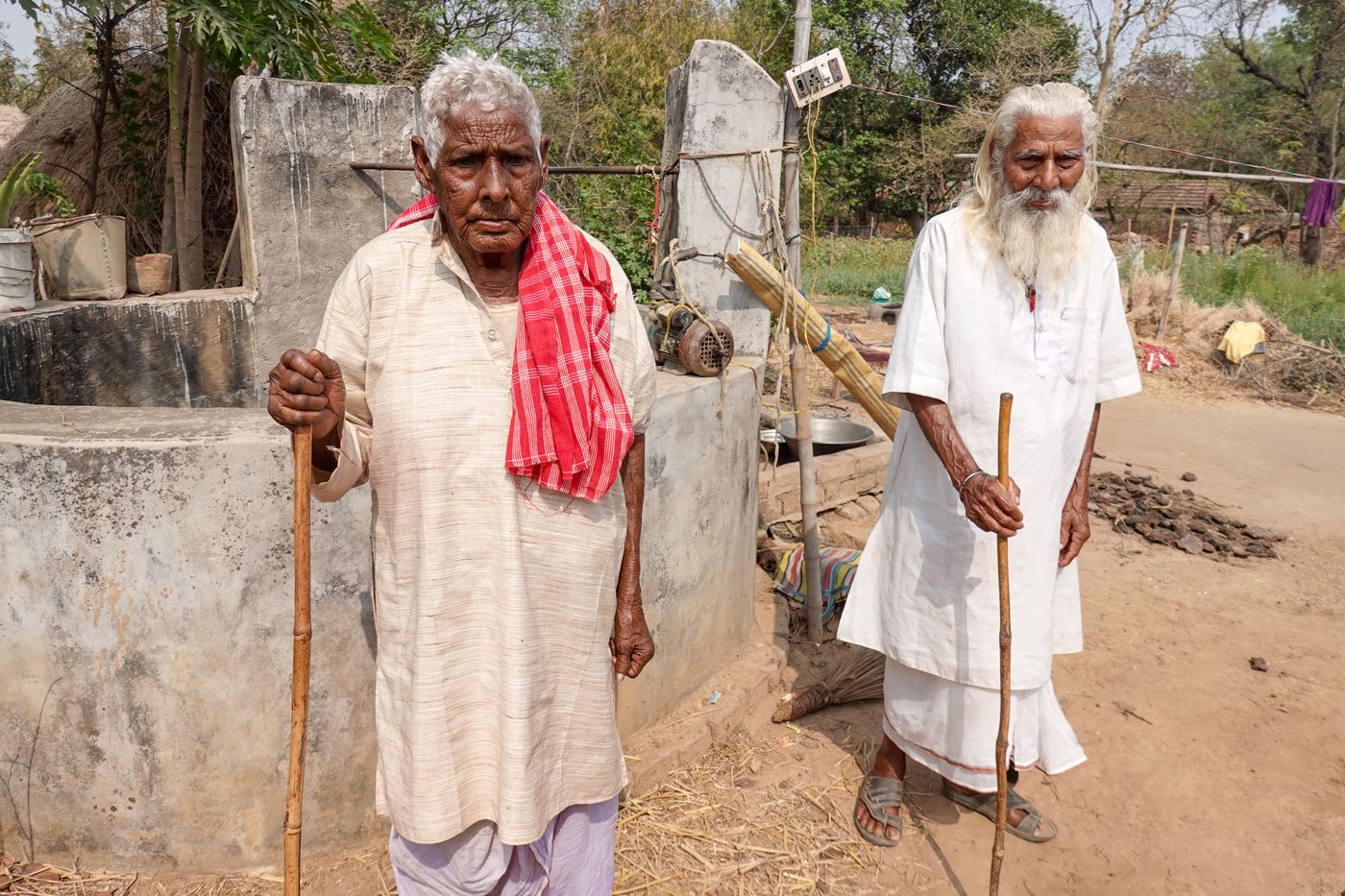
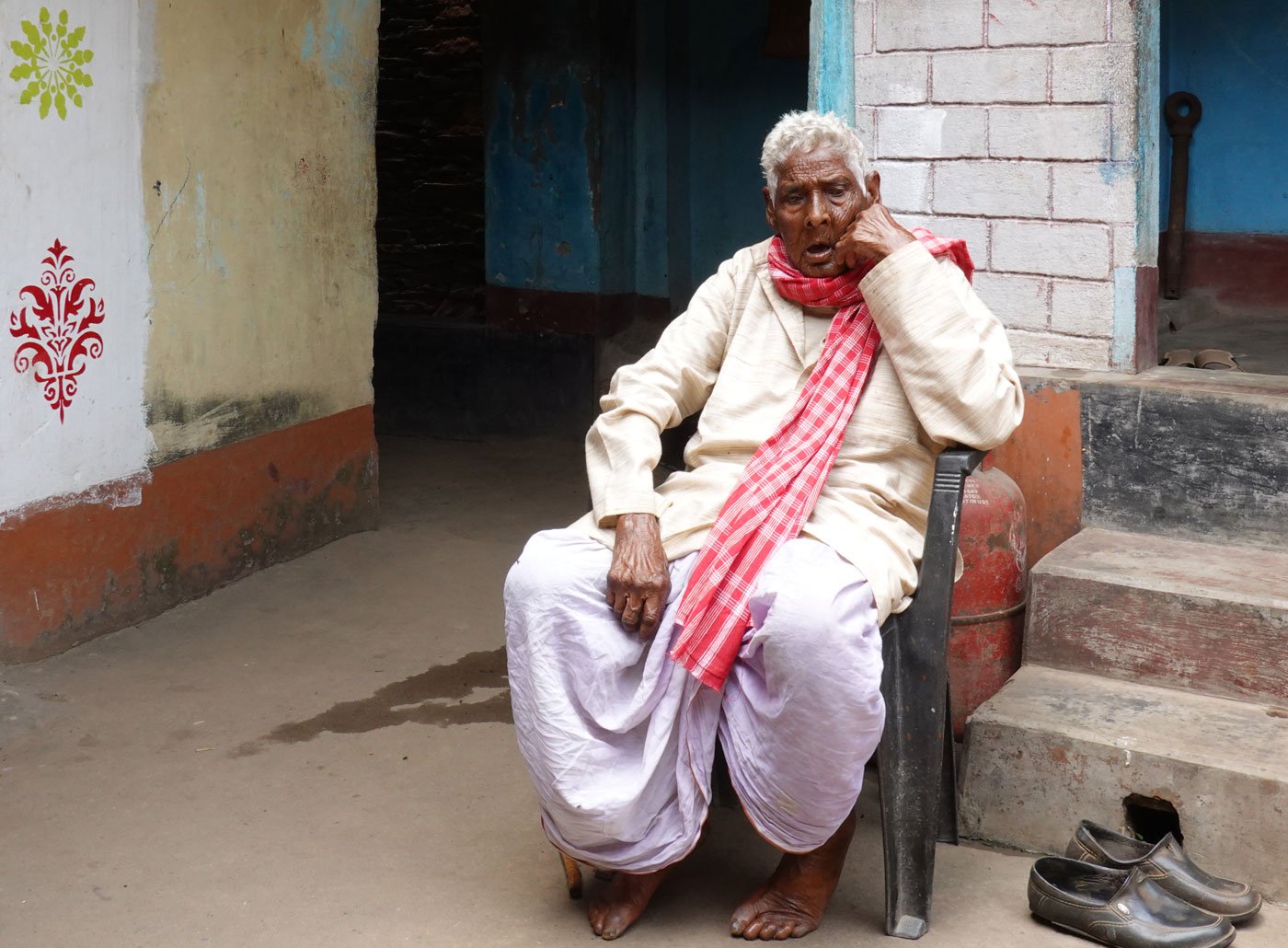
Thelu and Lokkhi showed us how open to ideas and influences their generation was. Thelu saw himself as a leftist and revolutionary, pledged to non-violence
Thelu and Lokkhi saw no contradiction in these layers. Their attitude towards the bandits was an odd mix of revulsion and reverence. They respected them but did not follow in their violent footsteps. And for decades after Independence, remained politically active in various land and other struggles – as independent Leftists leading Gandhian lives.
Thelu Mahato was a Kurmi – a community involved in many struggles in the rebellious region of Jangalmahal. The Kurmis were punished by the British who robbed them of their tribal status in 1931. Restoration of that Adivasi status remains their greatest goal and the very day Thelu died was marked by a new phase of action in the ongoing agitation raising that demand in Jangalmahal.
Thelu never received a freedom fighter’s pension, nor recognition of his role in the freedom struggle. He was living on an old-age pension of a thousand rupees when we last met him. In a home that was a dilapidated, tin-roofed single room. Not far from it, stands a well he created with his own hands that he was most proud of and wanted to be photographed beside.
The well that Thelu dug remains. The well of memories of those who fought for India’s freedom sinks ever lower.
You can read the full story of Thelu, Lokkhi and those 14 other freedom fighters in P. Sainath’s book: The Last Heroes: Foot Soldiers of Indian Freedom , Penguin November 2022.
See their photo albums and videos in the Freedom Fighters Gallery on the People’s Archive of Rural India (PARI)
This article was first published in The Wire.